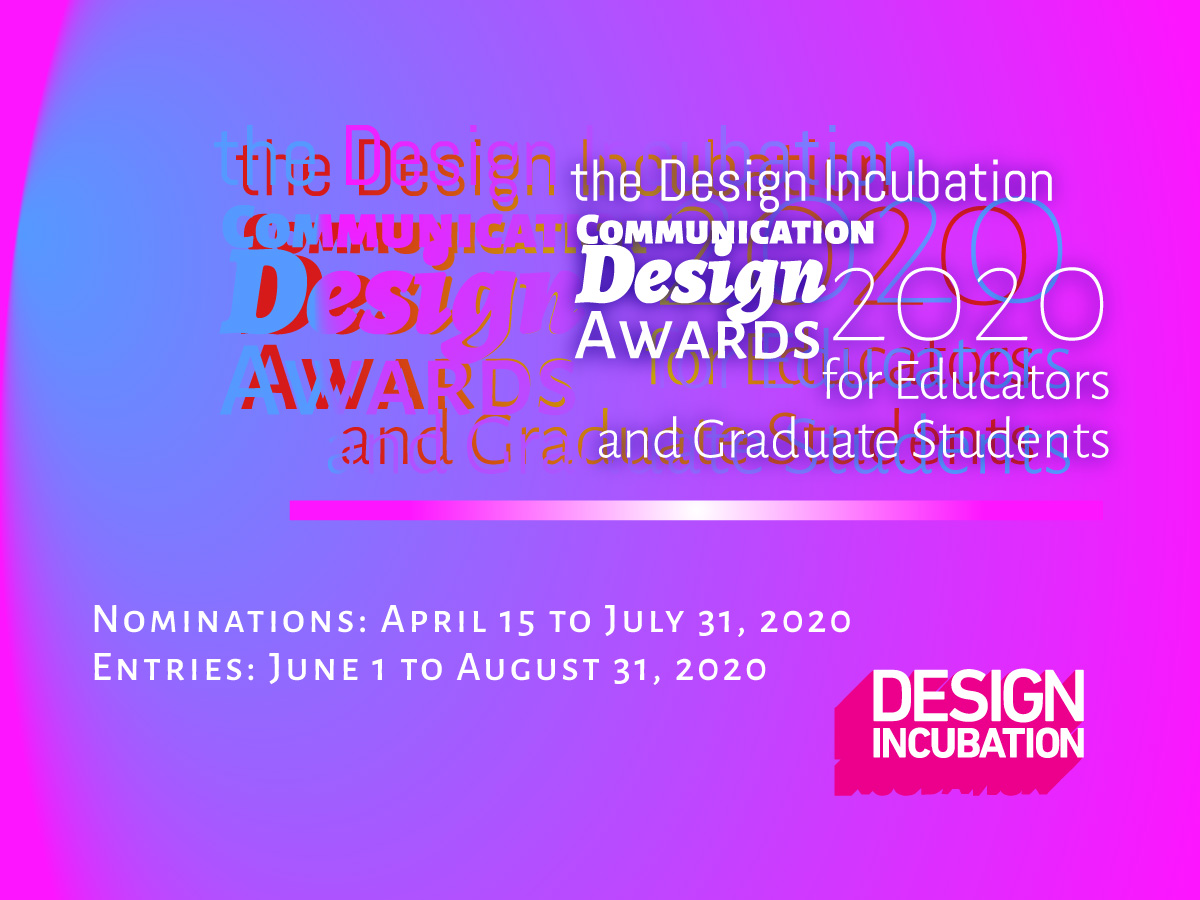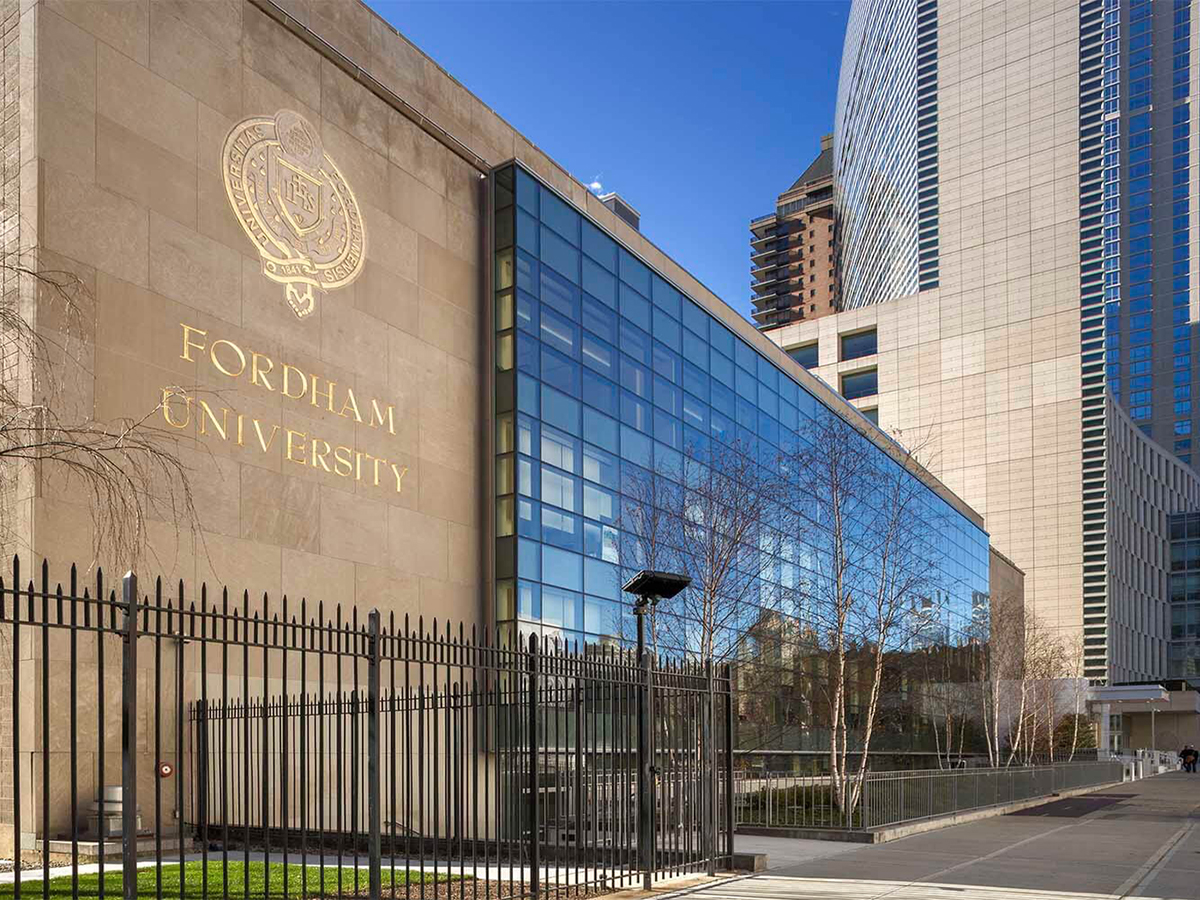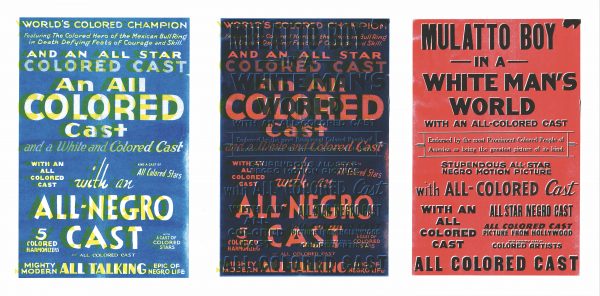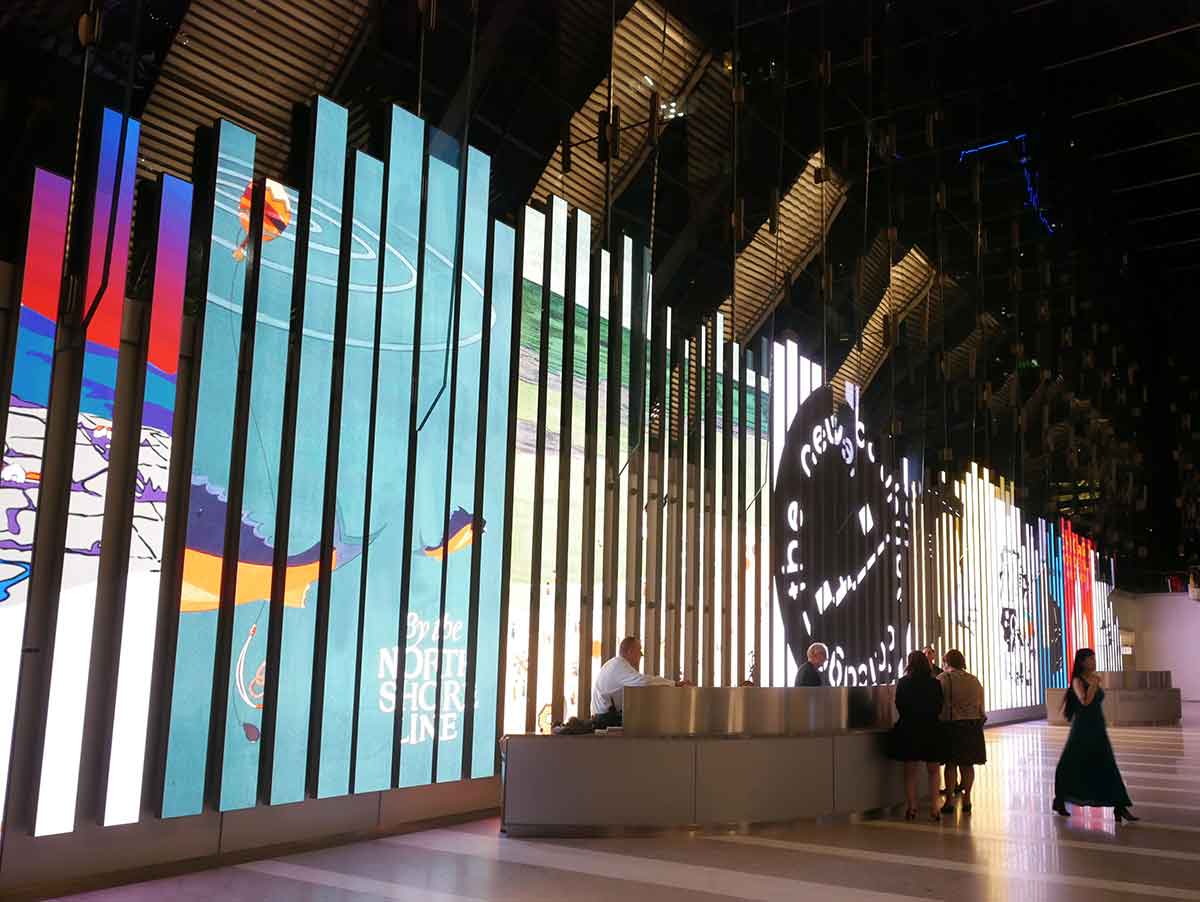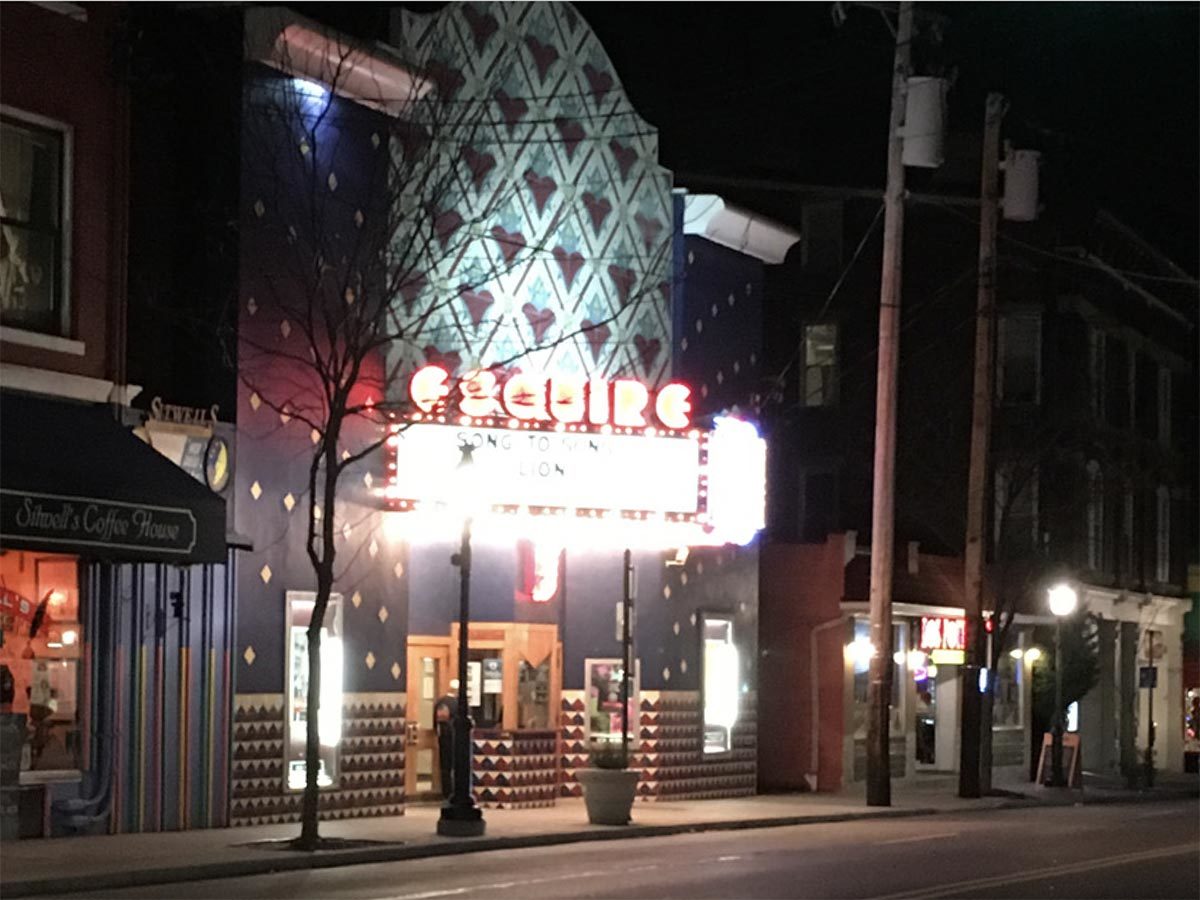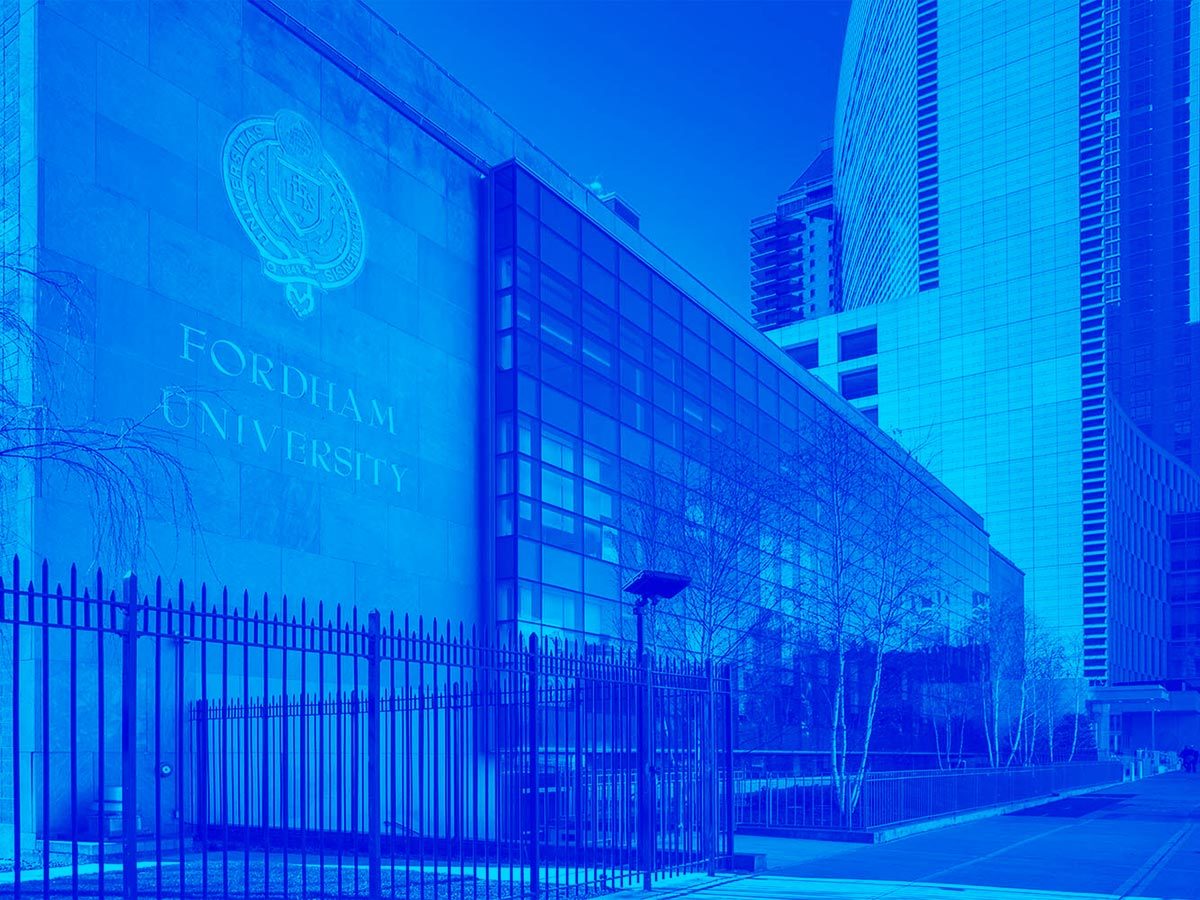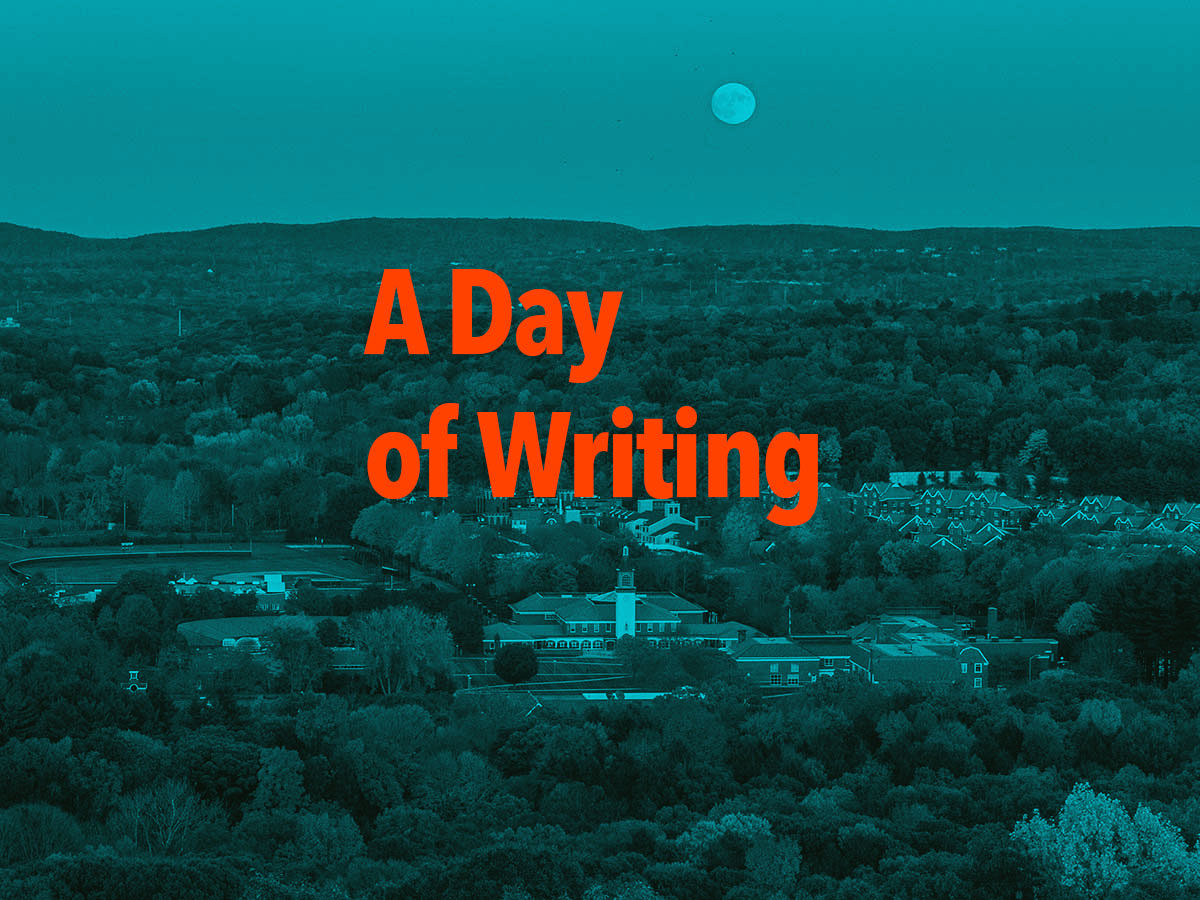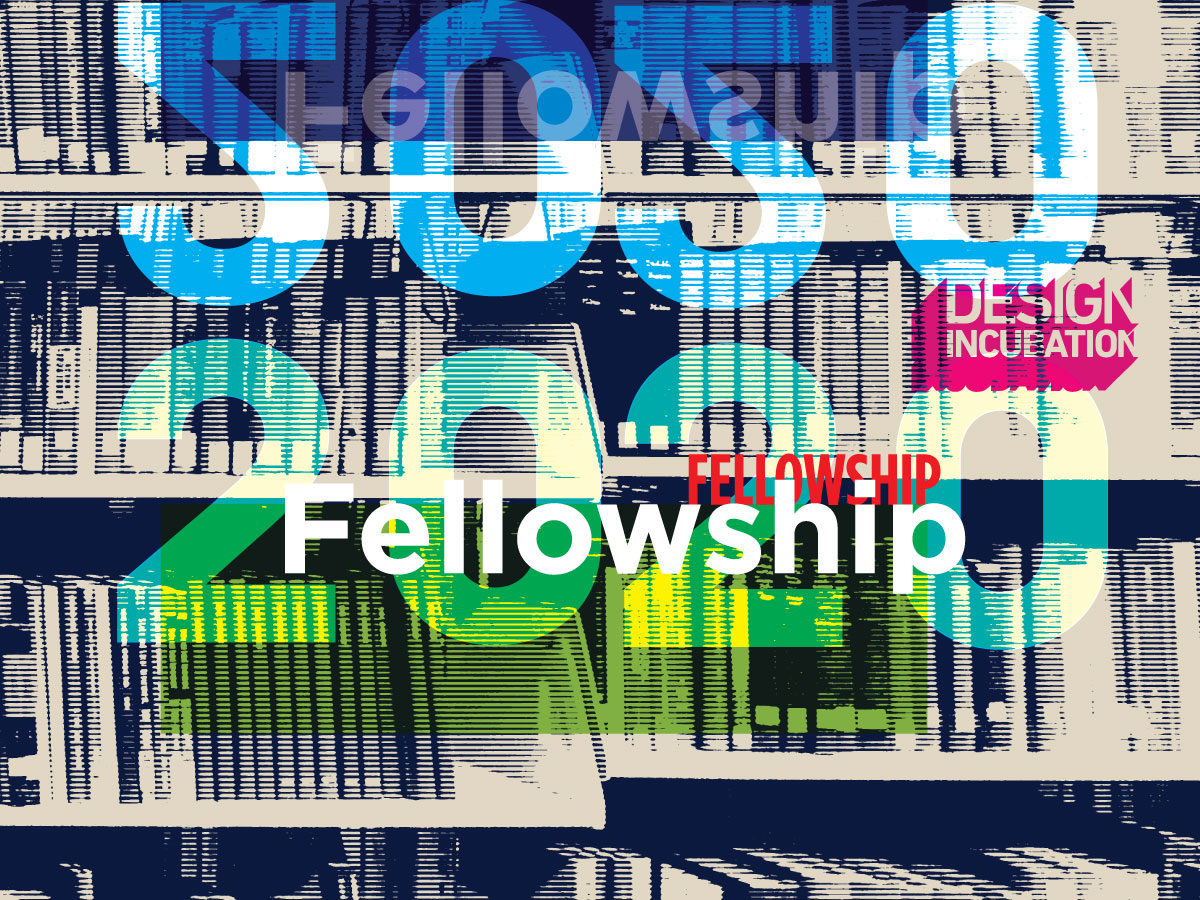Design Incubation announces a call for nominations and entries for the 2020 awards for communication design educators and graduate students in the areas of scholarship, teaching, service. The aim of the awards program is to discover and recognize new scholarship (creative work and publications), teaching, and service in our broad and varied discipline. We hope to expand the design record, promote excellence and share knowledge within the field.
This year, the jury also will be considering commendations for work covering the area of diversity, equity, access, and inclusion in communication design. We encourage submissions of work that relate to these areas for consideration.
Nominations
We kindly ask colleagues and mentors to identify outstanding creative work, publications, teaching, and service being done by design educators and graduate students in our field and to nominate these individuals for an award. Nominations will be accepted from April 15 to July 31, 2020.
Entry Guidelines
Entries will be accepted from June 1–August 31, 2020. Complete the online entry form with the following:
- Title: Description of project and outcomes (not to exceed 500 words)
- Supporting Materials (limited to 5-page medium resolution pdf of artwork; web links to websites, videos, other online resources; published documents or visual documents)
- Bio of applicant/s (150 words per applicant)
- Curriculum vitae of applicant/s
New Initiative for the 2020 Design Incubation Awards: Graduate Student Work
Beginning this year, Design Incubation is accepting entries in a new juried area of Graduate Student Work. The future of communication design education begins with the work of future faculty and researchers in the field of Communication Design. Recognition of graduate student work will be grouped and reviewed in the categories of scholarship, creative projects, and service. Graduate students currently enrolled in graduate design programs are invited to submit scholarship, creative projects, and service projects they completed during graduate study or up to one year after graduation.
2020 Jury
- Gail Anderson, School of Visual Arts, United States
- Fatima Cassim, University of Pretoria, South Africa
- Denise Gonzales Crisp, North Carolina State University, United States
- Paul Nini, Ohio State University, United States
- Maria Rogal, University of Florida, United States
- Teal Triggs (Chair), Royal College of Art, United Kingdom
